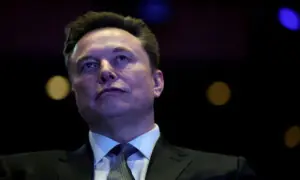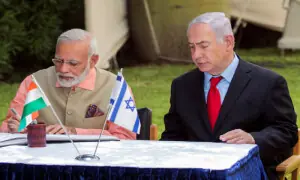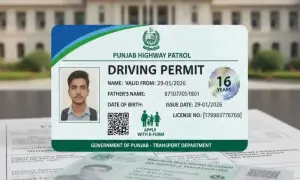Atif Mian: Pakistan has already defaulted and needs ‘courageous’ decisions
5 min readPakistani-American economist Atif Mian has said that while Pakistanis are busy debating the definition of a ‘default’, the country has already defaulted on its international obligations.
Speaking to Munizae Jahangir on her Aaj News show “Spot Light”, he said that Pakistan’s situation may deteriorate and it could become a country like Haiti 25 years down the line unless governments take “courageous” economic decisions, end subsidies for the elite and improve the fundamental economic decision-making process. “I simply don’t understand why the [decision-makers] have not woken up,” he said, referring to the possibility that Pakistan could end up like Haiti or Afghanistan.
The author of House of Debt, who was once nominated to the Pakistan Economic Advisory Council by then-Prime Minister Imran Khan, explained why the ordinary Pakistani cannot afford chicken and why an upper middle class parent cannot pay the university fee (in foreign currency) for their child studying abroad.
Munizae Jahangir began by referring to positive outcome of the Geneva Conference where international donors pledged over $10.5 billion for Pakistan’s flood recovery and Saudi Arabia’s decision to invest around $10 billion in Pakistan.
Jahangir asked if Atif Mian thought there was a risk of default before the general election expected in October 2023.
Atif Mian said that saying that there was a risk of default was wrong. “We should tell the truth to our people. The country has already defaulted. What does a default mean. It means the promises you have made to people either explicitly or implicitly, you fail to live up to them.”
Atif Mian said he was referring to payment of dollars. “For example, if a man sends his son abroad for study and wants to pay his fee bt the bank refuses to transfer the payment it amounts to defaulting on that promise,” he explained.
He said that while the government made payments for bonds that had matured recently, it blocked payments of importers and students living abroad. “We are busy with the definition. In reality, the default has already happened.”
Atif Mian said that the rising price of chicken in Pakistan was also caused by the unacknowledged default because the government was not allowing the import of poultry feed in its attempt to manage its dollar crisis.
He said the current government has replaced its own finance minister, but “see what policy they adopted.”
“They tried to peg the value of the dollar artificially. To do this they had only one method: refuse imports artificially. For example, if a textile company is exporting to other countries from Pakistan but to manufacture products it needs to import chemicals and you refuse to allow import of the chemical.”
Similarly, there is a chicken crisis because the feed for chicken is imported [from other countries]. That feed helps chickens gain weight… If you block the import of feed, the chicken will not gain enough weight to be sold in the market and obviously your poultry farms will close down. It will lead to a further price increase of chicken,“ he said.
He said that heads of political parties are responsible for the country’s economic decision because they picked the finance managers.
Atif Mian said that Pakistan needs to change its decision-making process and listen to international financial institutions.
He said it was misleading to think that international monetary institutions did not allow room for negotiations. You have small room, for example, if the IMF asks you to increase the price of something and you tell them that you cannot do that, then you have to offer options so you can raise revenue from other sources, he said.
He said successive governments had failed to present their own revenue generation plans to international lenders.
Atif Mian said that the government must change the economic fundamentals of the country and end subsidies and incentives offered to the real estate and sugar industry. “This in itself is a political decision, unless you take courageous political decisions, this economy will run as it is running today,” he said.
Munizae referred to Sri Lanka that is now talking about debt trap because of its Chinese loans. Economist Hafiz Pasha has said that our loans with private Chinese companies were signed on very stiff conditions. “This is correct in a large measure,” he replied.
“Pakistan is, for sure, stuck in a debt trap situation. This debt trap is because of Chinese loans and non-Chinese loans. It wasn’t that long ago, just five years or so, when we were signing our loans with China, I tried to raise the issue publicly, to ask whether someone was keeping an eye on what the purpose was of such loans?” Was someone wondering if we would even be able to return the money? Because the simple math is that if you are borrowing in dollars, you should use that money only on things that will make you dollars so you can pay back China. “We have never paid attention to this basic question.”
“I feel a bit nervous talking about one-size-fits all solutions,” he said. “We just don’t have the space to be making the kind of decisions we have been making.”
When Munizae referred to an oft proffered argument by Kaiser Bengali, another economist, to reduce Pakistan’s non-combatant military or defense expenses, Atif Mian said Pakistan cannot drastically cut its defence expenditure as the Taliban were at the border.
For the latest news, follow us on Twitter @Aaj_Urdu. We are also on Facebook, Instagram and YouTube.























Comments are closed on this story.